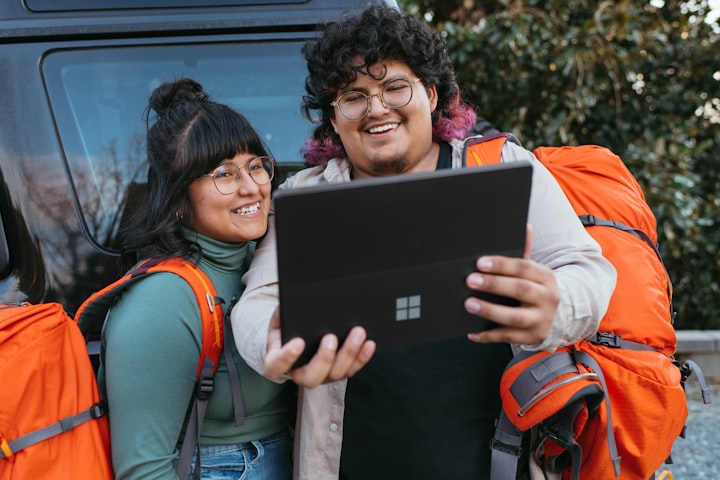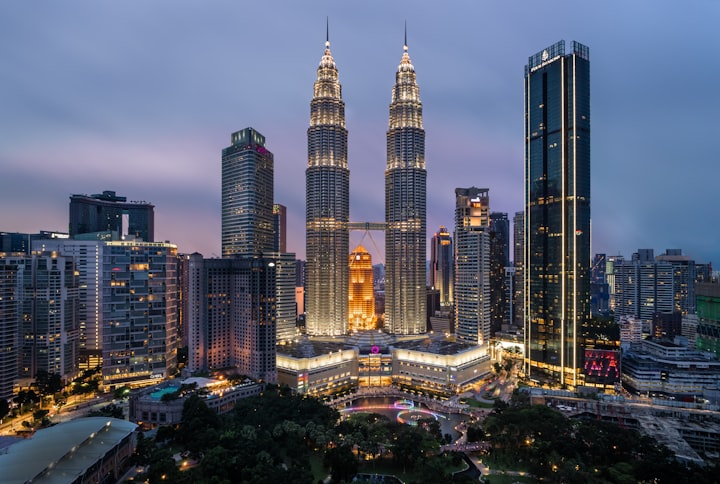My travel tips
These tips can help you avoid costly blunders
After years of living abroad and traveling to many various places, I've learnt a few key things that have helped me make the most of my travels.
While everyone is different, I'm convinced that these basic yet effective ideas can greatly enhance your trips, regardless of who you are or where you go. These tips can help you avoid costly blunders, have a better time on your trip, and have the trip of a lifetime.
Here's how to do it:
Pack as little as you can.
While staying in Mykonos for a few days, the hotel manager informed me that a couple had arrived with eight pieces of luggage. They were unable to fit in their hotel room and were forced to get another.
Meanwhile, I just had one rucksack with me, which included a few clothes and a laptop.
One of the finest ideas for an amazing trip is to pack light.
Only a few pairs of clothes, some hygiene supplies, and a few accessories are required (like your electronics if you plan to work). Bring nothing "just in case"—you'll very certainly never need it, and if you did, you could get it for less than $5 once you arrive.
Unless you're travelling to a remote location with no access to basic goods (such as the desert), you can just buy all of your favorite brands once you there.
This is really valuable since it provides you with independence. It significantly lowers your stress levels. You can easily go from one location to another. (Can you picture hauling eight pieces of luggage throughout Europe with two people?) You're no longer as bound by your surroundings, which is sort of the goal of travel in the first place.
"I can't stress how crucial it is to travel light enough. Dragging a huge bag full of stuff from place to place is the surest way to limit your flexibility and transform your travels into a silly, grunting act."— Rolf Potts
See "Minimum"
People frequently try to "bite off more than they can chew," giving themselves two weeks to visit five countries or 30 days to see ten cities.
A number of things will occur. For starters, they'll be worn out by the end. Two, there will be cities in which they wish they had more time. Three, they'll lose out on a lot of interesting stuff and won't be able to comprehend and understand what they've seen. They'll shoot a lot of shots in the end, but they won't get a true sense of the place.
Instead, I recommend that you look at "less." What I mean is that you should visit fewer places. If you just have two weeks, for example, you should only visit two countries.
You'll actually see more if you see "less." Not only can you see hidden gems, but you can also visit the top five tourist destinations with long lineups. It's easy to get lost in the many communities. You have the option to take your time and get a true sense of the location.
"The value of your travels is not determined by the number of stamps you have in your passport when you return home — and the leisurely, nuanced experience of a single nation is always preferable to the rushed, superficial experience of forty."
— Rolf Potts
Make fewer plans.
If you're going to Paris, knowing that you want to see the Eiffel Tower, the Louvre, Notre Dame, and other sights is useful.
However, I recommend that you avoid planning every minute of your day and instead add free time to your calendar so that you can be spontaneous.
When you're traveling, it's excellent to see a variety of things. However, when you improvise, you can have a lot of fantastic experiences. Perhaps the weather is pleasant and you want to visit a park. Perhaps you came across a fun, impromptu event. Perhaps you meet a local who wants to take you somewhere that wasn't originally on your schedule.
Allow it to happen. Have fun with it. And keep in mind that traveling is as much about seeing things as it is about living.
Prepare ahead of time
Some people book only what they need because they don't want to be confined, therefore they'll look for lodging once they get in a city.
But, especially if you're running a business or working remotely, I strongly advise against it.
It's a lot more stressful, and it puts you in a difficult situation since you can only choose from the leftovers—hotels, flights, buses, and so on.
The best, highest-rated hotels, Airbnbs, and other accommodations are frequently booked months (or even years) in advance, especially during peak travel season or in popular destinations.
Keep in mind that you're up against the entire planet. If you want to stay for a month, all you need is one person to book a weekend to entirely block your itinerary.
Instead, plan ahead and book your hotels, flights, and other travel arrangements a few months in advance. You'll be able to pick from the greatest possibilities and relax, knowing that your trip will be taken care of.
Rest
I used the example of someone seeking to see ten cities in 30 days earlier. Sure, it's thrilling and exciting, but going 100 miles per hour every day is exhausting.
When traveling for an extended period of time, I strongly advise taking "off days" on a regular basis.
Don't go sight-seeing, don't go on a five-hour walk, and so on during these days. Sleep in, relax at home, go to the movies, sit in a café, and do nothing instead. It will re-energize you so that you can travel at your best.
Stretch as well. It will help you get rid of the aches and pains that come with being on your feet for eight hours a day.






Comments
There are no comments for this story
Be the first to respond and start the conversation.